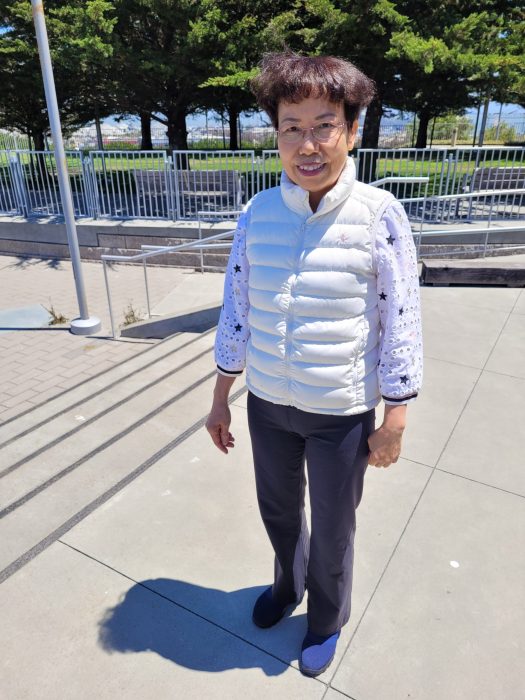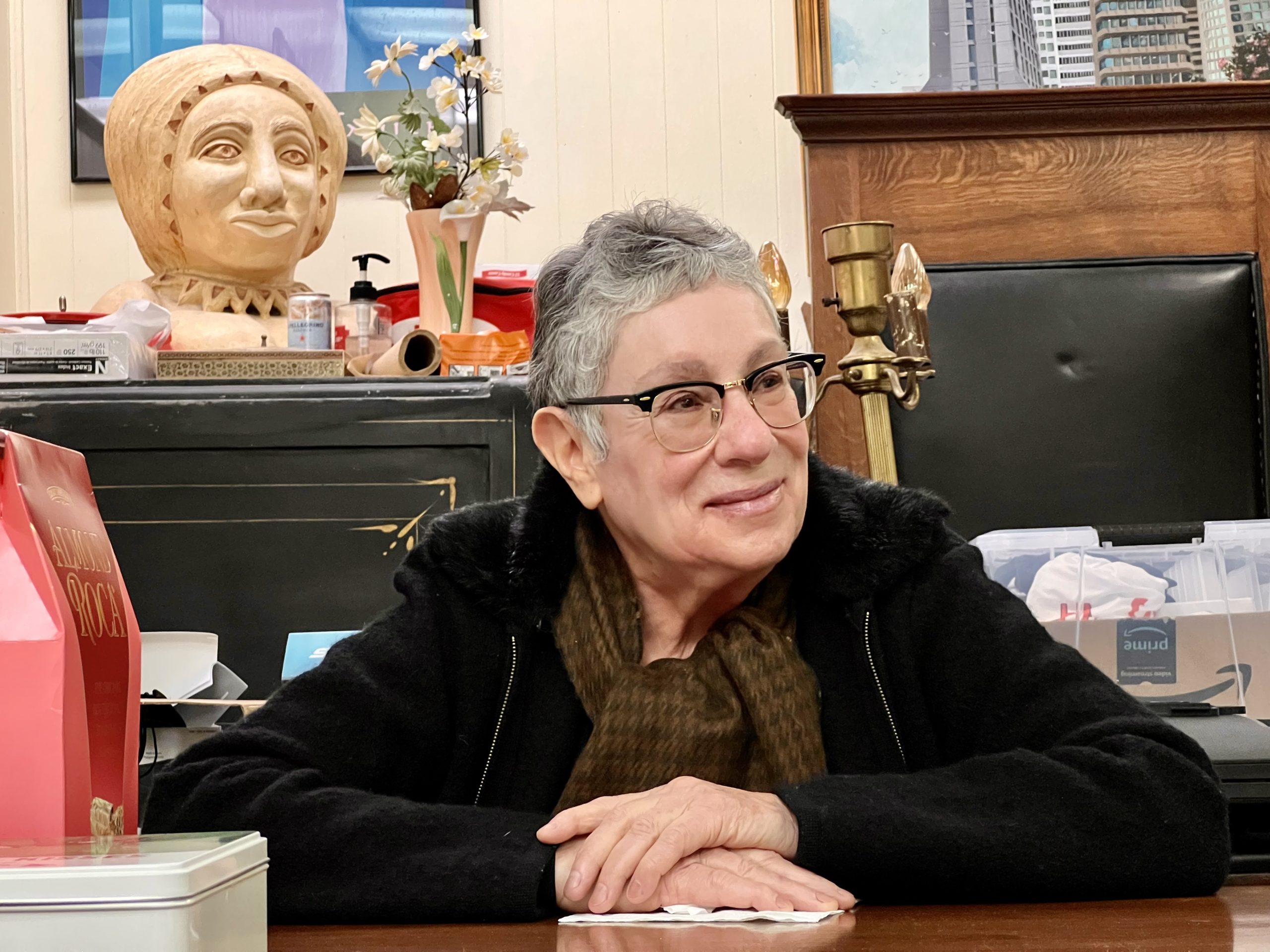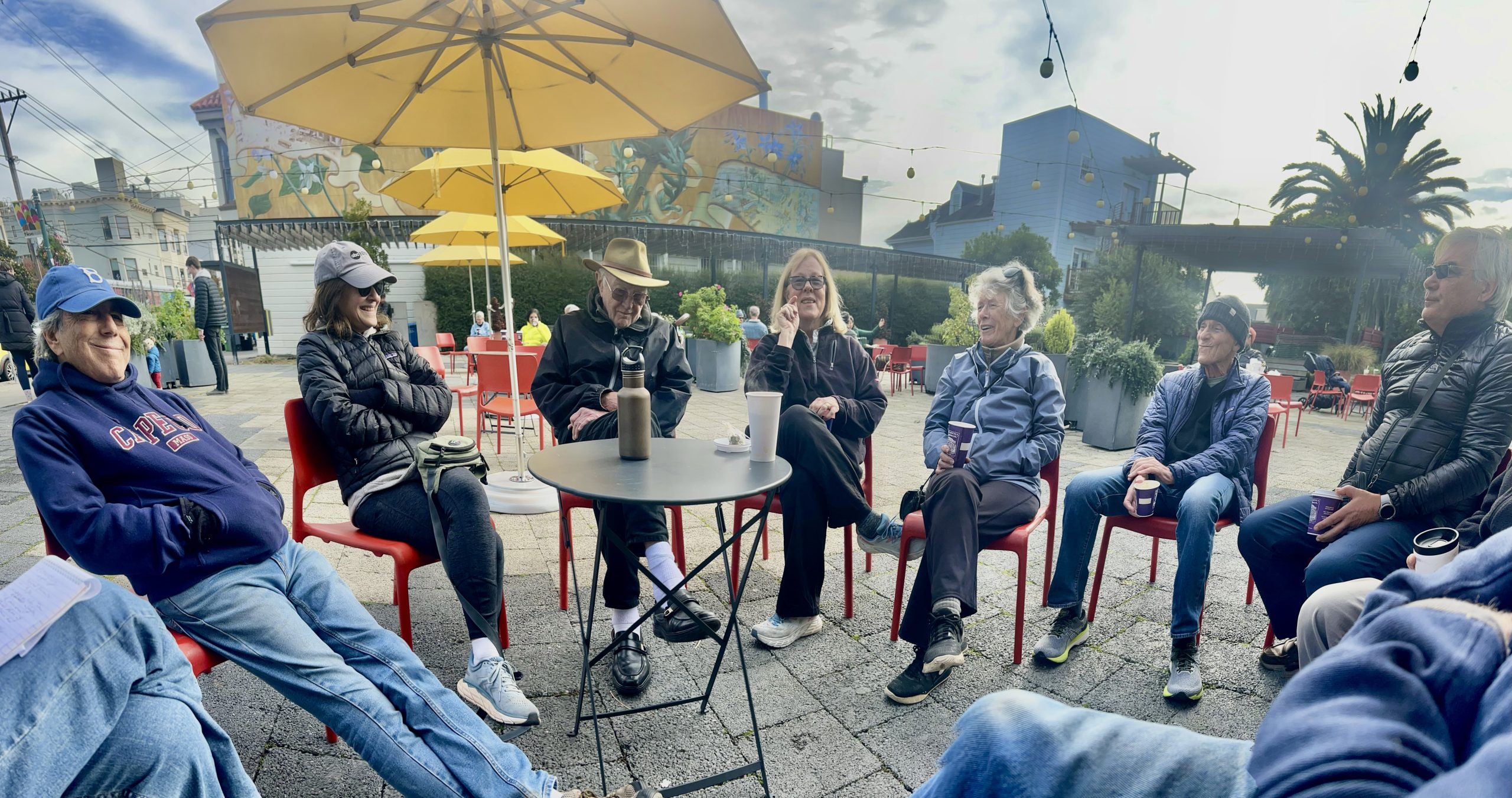Chinese immigrant whose motto is ‘seize opportunity, work hard, take risks,’ finds success as nursing assistant, caregiver
Yanzhen Guo and her family moved to San Francisco in 2011. Like many newly arrived immigrants, they couldn’t afford a home of their own, lacked marketable job skills and spoke limited English.
Eleven years later, the family is living in a two-story townhouse in Hunters Point. Guo is now a licensed nursing assistant, works steadily and their son earned a degree in computer science from the University of California-Davis.
Guo, now 61, sees life as a series of opportunities to be seized, though they may require hard work, luck and a willingness to take risks. “I dare to take the opportunity,” she said. “If I don’t make it, I’ll try again. I’m just a positive person.”
Guo, whose full name is pronounced yan-zen goo, works six days a week providing care to Homebridge clients with complex mental and physical issues. And, she has become an active member of a labor union.
Winning the lottery
When she, her husband and their 10-year-old son arrived in San Francisco, they lived with Guo’s sister in the Outer Sunset, but they wanted their own place. Somewhere, Guo hoped, that was “warmer, sunnier and newer.”

The city had opened a lottery for subsidized rental housing in Hunters Point, and despite her sister’s warning that the area wasn’t safe, Guo visited and loved the place. She entered the lottery and won a two-bedroom, two-story corner townhouse close to a park where she can exercise and a bus line that brings her to her jobs in the city’s Tenderloin district.
Guo worked as a bookkeeper in China and held degrees in chemistry and financial management. But she lacked the English skills to compete for office jobs in the U.S. Observing San Francisco’s aging population and employment forecasts, Guo realized that elder care was the most rapidly growing occupation in the state. Though caregiving is generally a low-paying position with limited opportunities for advancement, the work promised steady employment.
She enrolled in City College of San Francisco’s intensive, thee-month training program for certified nursing assistants. It was a risk, requiring more than $1,000 from family savings to pay for the coursework and exams. And it wasn’t easy. While the classes were in Chinese, the texts and exams were in English. “But I studied hard, and I don’t complain,” she said.
After passing the exam, she was hired by Homebridge. Her first client was – to put it mildly – difficult. An angry, elderly woman with Alzheimer’s, she yelled at Guo every day for six months. Guo put up with it – “I became used to being yelled at.” – and took further courses on caring for Alzheimer’s patients.
A six-day workweek
Today Guo works for two to four clients a day, six days a week, building a nest egg for retirement. Unlike her angry client, many welcome her and the opportunity to talk. “I do different things for each person,” she said. “I take their blood pressure, clean, cook, shop and do some personal care like keeping them clean and changing diapers. Sometimes we talk; a lot of times I just listen to them. They’re lonely.”
On her one day off a week, Guo cleans house, walks with a friend, exercises in her neighborhood park and cooks dinner, a task that falls to her husband and son when she’s working.

As a member of the union that represents Homebridge caretakers, SEIU Local 2015, Guo regularly attends meetings and has been involved the so far unsuccessful struggle to get “combat pay” for working during the pandemic. She also offers help to members unsure of their rights.
A Chinese-speaking member seeking bereavement pay to attend her mother’s funeral had called her recently. “I didn’t know the answer but promised to look it up when I got home and call her back,” she said, pointing to a section of her copy of the contract she had notated in Chinese. “I like answering questions, I like training, I like learning.”
She also likes to share her computer skills to help others access various kinds of assistance. “The clients don’t always know what’s available, like free diapers, low-cost phone service, transportation vouchers, or even additional hours of home care. I explain the programs and help them apply.”
Guo also volunteered for a new opportunity for herself through Homebridge. She became one of five students in the first class of a pilot project to upgrade employees’ skills and prepare them for high paying jobs with more opportunities for advancement in hospitals and other medical facilities.
But even for Guo, it appears, there is a time when you decide not to take the next opportunity. Though she graduated and passed the exams, she decided not to apply for another job.
“I’m too old and I don’t have enough energy,” she said. “Also, I’m small and can’t lift people. I’m happy with my present clients.”





